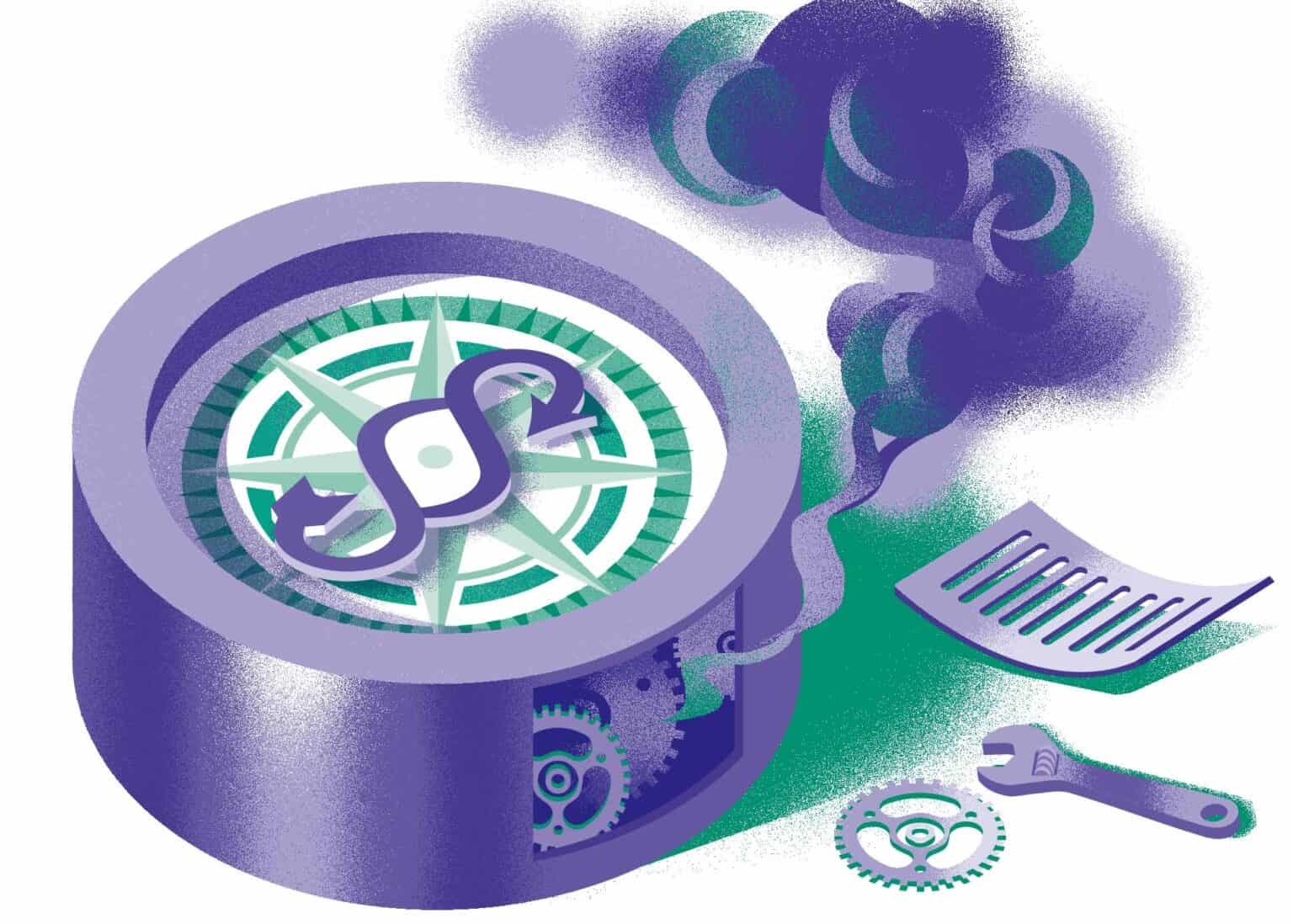The day that Swedish researchers had been looking forward to since the problems within the Ethical Review Act became acutely clear had finally come: on 29 August, the Minister for Education, Mats Persson, announced that the Act would be reviewed. Again.
But SUHF, the higher education institutions’ main cooperation body, received the news of the review’s directives with some disappointment.
The review of the Act will assess whether all or certain types of research that include information about breaches of law or sensitive personal data should be exempted in the provisions of the Ethical Review Act. It will also propose changes so that ethical review is only conducted on research where it is ”genuinely needed” in order to protect the research subject and human dignity.
SUHF welcomes the review and has been unusually proactive in this legislative work – the higher education institutions’ analysis of the problems has been presented to the government both in a round table dialogue and in a paper.

Jonas Åkerman
Secretary, SUHF´s expert group on ethical issues
Nevertheless, the directives reflect the selective and sometimes simplistic picture of the problem that has been the focus of public debate about the Ethical Review Act, says Jonas Åkerman, who is the secretary of SUHF’s expert group on ethical issues.
“The main focus is on personal data processing and on exceptions, and the government has therefore overlooked many important issues,” he says.
One example he gives is that the Ethical Review Act’s concept of influence has come to be interpreted in a way that includes completely harmless interventions, such as reading texts where the spacing of certain elements of a sentence varies.
He also believes that there is research where it would not be reasonable to make full exceptions, but which would need to be ethically reviewed in a different way than today, for example to enable studies of ongoing current events – conflicts, disasters, pandemics and the like – that cannot wait several weeks or months for approval.
In his role as coordinator for research ethics support at the Office for Research, Engagement and Innovation Services at Stockholm University, Jonas Åkerman works daily as a link between the Ethical Review Act and researchers, where he encounters the great breadth and complexity of research. It is this breadth and complexity that SUHF believes the review directives should reflect better.
What can be regarded as an appropriate and proportionate ethical review procedure varies according to the type of research, even within the same scientific field. SUHF would therefore like to see a thorough review of the Act, which might lead to a more diversified system with different review procedures depending on ethical complexity.
Simply put: a bigger toolbox for researchers and the regulatory authority.
“Instead, the directives seem to be based on an ‘all or nothing’ perspective. But an exception that would be positive for one field of research could create problems in another,” says Åkerman. One problem may be that an exception means that the research does not live up to international ethical standards, to what journals or foreign research partners expect, or simply that they don’t provide reasonable protection for the research subject. “So a proper impact analysis is needed, not only with regard to individual research areas but research as a whole.”
“It’s a major problem that there is so much uncertainty about how the regulations are to be applied, which makes it difficult for researchers to know where the boundaries are. Exceptions in the Act can shift the boundaries, but without guidance, the boundaries may remain just as unclear.”
Jonas Åkerman
SUHF also wants to see clear guidance in the preparatory work to the revised Act. “It’s a major problem that there is so much uncertainty about how the regulations are to be applied, which makes it difficult for researchers to know where the boundaries are. Exceptions in the Act can shift the boundaries, but without guidance, the boundaries may remain just as unclear.”

The other major issue in the review directives concerns regulation. In October last year, the Ethics Review Appeals Board, ÖNEP, submitted a request to the government for a less severe option when it comes to sanctions. The Board has found that prosecutions for breaches of ethical review have sparked concern in the research world and are perceived as extremely punitive.
For less serious violations of the Ethical Review Act, the Board therefore proposes that it should be able to limit itself to criticism of the researcher responsible rather than filing criminal charges. The review will now examine how the obligation to prosecute can be changed and whether the provisions regarding oversight should also be amended in other respects.
SUHF has also requested this. But another major legal issue that SUHF has raised, and which is missing from the review’s directives, is that ÖNEP’s decisions cannot be appealed. “Often the prosecutor drops a case with some brief explanation. That can be seen as declaring the researcher innocent of a crime, but not of a breach of good research practice, and that can be a major issue when it comes to both research funders and colleagues,” says Åkerman.
The current procedure is also tricky for the higher education institutions. A lack of ethical approval is a clear deviation from good research practice. Higher education institutions are obliged to follow up such violations, and the consequence could be labour law measures taken against the researcher concerned.
But when the regulatory authority has already investigated the matter and established that the researcher does not have or has failed to comply with their ethical approval, it is unclear what mandate the university has to conduct an independent investigation into that particular case.
“If you just remove the obligation to prosecute, we could have a situation where a researcher cannot appeal against ÖNEP’s criticism and where the university is regarded as bound by ÖNEP’s decision,”
Jonas Åkerman
“If you just remove the obligation to prosecute, we could have a situation where a researcher cannot appeal against ÖNEP’s criticism and where the university is regarded as bound by ÖNEP’s decision,” says Åkerman.
It is only six years since the most recent review of the Ethical Review Act was presented, and almost four years since the latest changes came into force. Why weren’t the problems foreseen then?

Jan-Ingvar Jönsson
Vice-chancellor, Linköping University
Jan-Ingvar Jönsson, who is now vice-chancellor at Linköping University, was one of the experts involved the 2017 review, Etikprövning – en översyn av reglerna om forskning och hälso- och sjukvård, (Ethical review – a review of the rules on research and healthcare). As the title indicates, the focus was primarily on the intersection between research and healthcare, and on tightening oversight and penalties, he says. The background to the review was the Macchiarini scandal.
The experts involved in the review had been chosen accordingly: medical experts and lawyers. Jan-Ingvar Jönsson’s background is as a professor in cell biology, during which time he also worked as a Secretary General at the Swedish Research Council, with responsibility for medical and clinical research. The 2017 review did not conduct a thorough analysis of how the Act and the new proposals impacted research in the social sciences and humanities.
“We did talk about it, but it was not included in the commission’s conclusions. Our assignment was quite specific,” says Jönsson.
During the consultation process, a few higher education institutions brought up the problems that the proposed new law may entail for jurisprudence, but most of the consultation responses focused on other matters. Neither the experts involved in the review nor the referral bodies seem to have anticipated how hard the increased criminal liability and the stricter regulation would hit researchers.
The review seems to have assumed that most violations of the law were punishable, as it concludes that ”the scope for what may constitute minor breaches, which should continue to be free from sanctions, can be considered small”. The changes to the law were approved unanimously by Parliament.

According to ÖNEP, it was only later, following dialogue with the Swedish Prosecution Authority, that the conclusion was reached that the Board had a duty to report all suspected violations, and that it was the prosecutor’s job to assess the degree of seriousness and intent.
SUHF believes that the basic problem with today’s process is that the system is not adapted to the reality of research and the fact that research can look quite different from case to case. That problem goes back to the birth of the Ethical Review Act in 2004.
“Because the personal data regulation definition of sensitive personal data is used, the Act covers too much, but at the same time it covers too little. There is some research that is sensitive when it comes to personal integrity, even if it does not process sensitive personal data in the legal sense,” says Åkerman. One example is research on personal financial data, such as debts and credit histories. Another is when the research itself violates privacy, such as reading someone’s diary without permission.
Like Jönsson, Jonas Åkerman believes that part of the problem also lies in the authorities’ application of the law. The vice-chancellor uses the term ‘overinterpretation’. “I also think that higher education institutions and researchers bear a certain responsibility for not identifying and raising the problems earlier. But it’s good that they’re doing it now,” he says.
SUHF will now actively try to assist the current review with its knowledge and insights. “We have a view of the whole that you don’t get from listening to the experiences of individual researchers.
Åkerman urges researchers to think about how the law and the new proposals will affect their research, and to discuss their thoughts with the support function at their institution or through other channels. “Then SUHF can continue to build up the picture and get the issues on the agenda. Even if a matter that comes up lies outside the review’s stated directives, it may be possible to bring up things that are missing, that need to be done differently or that should not be changed at all.




















